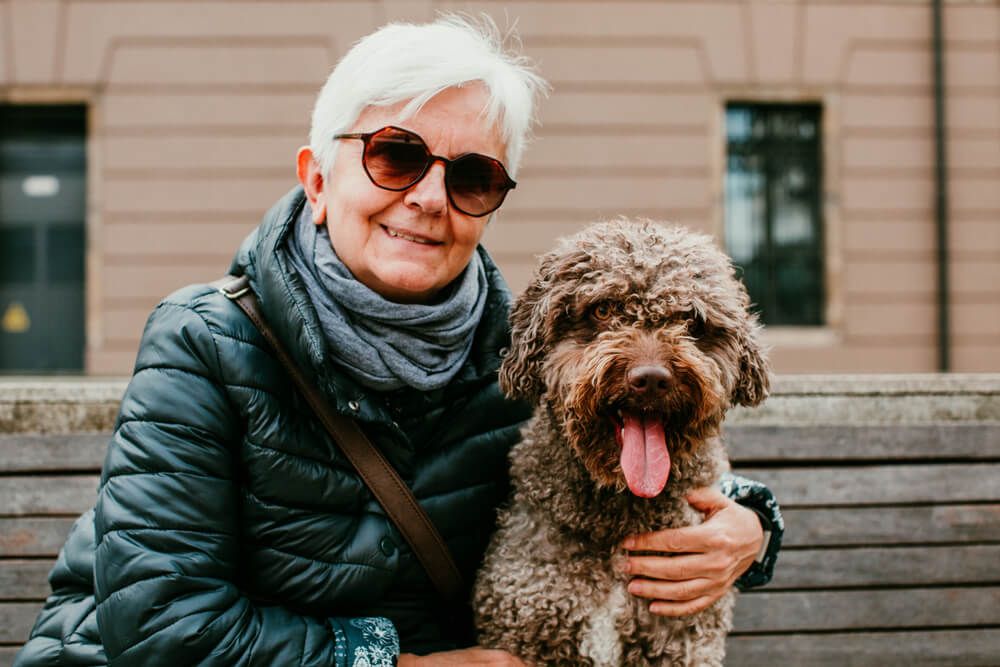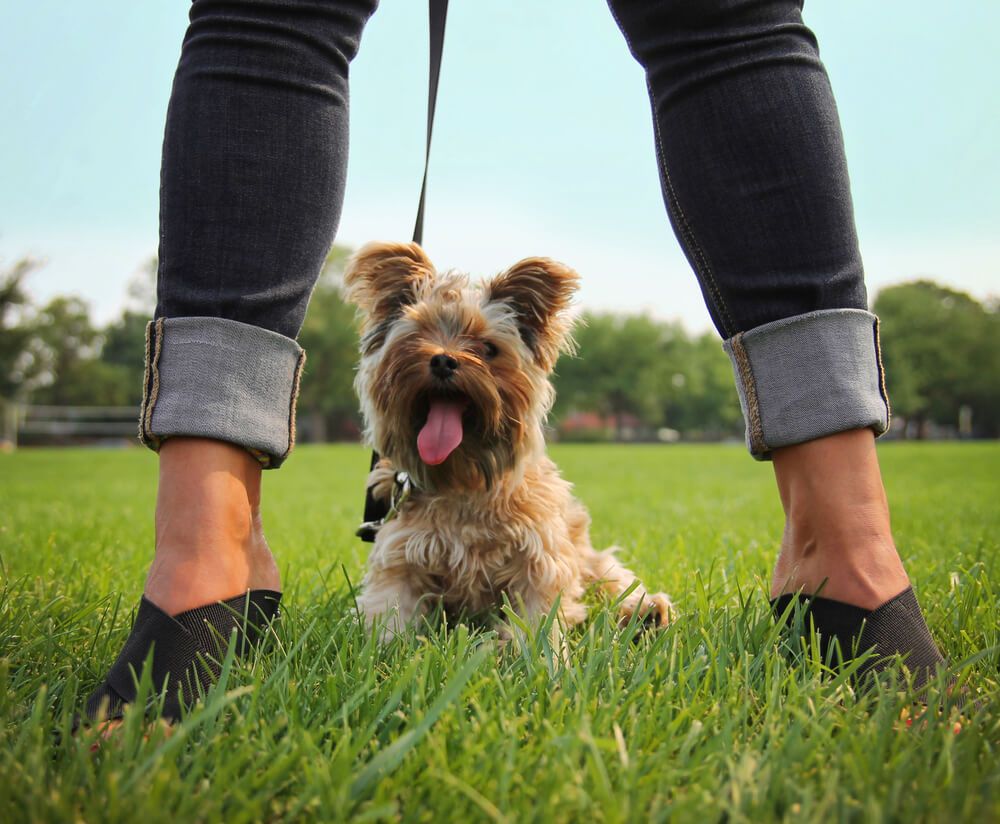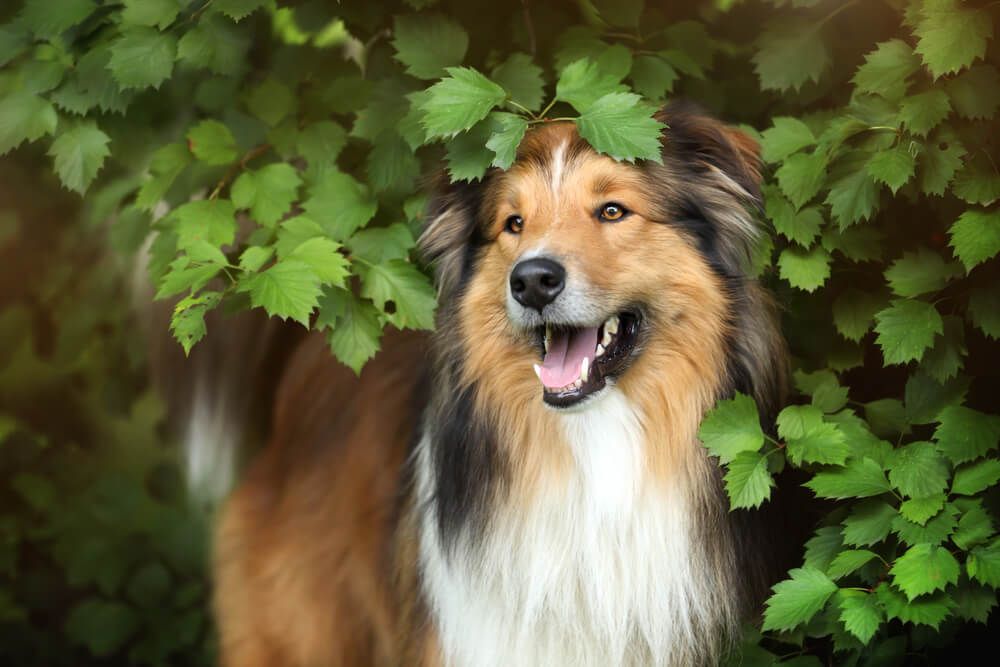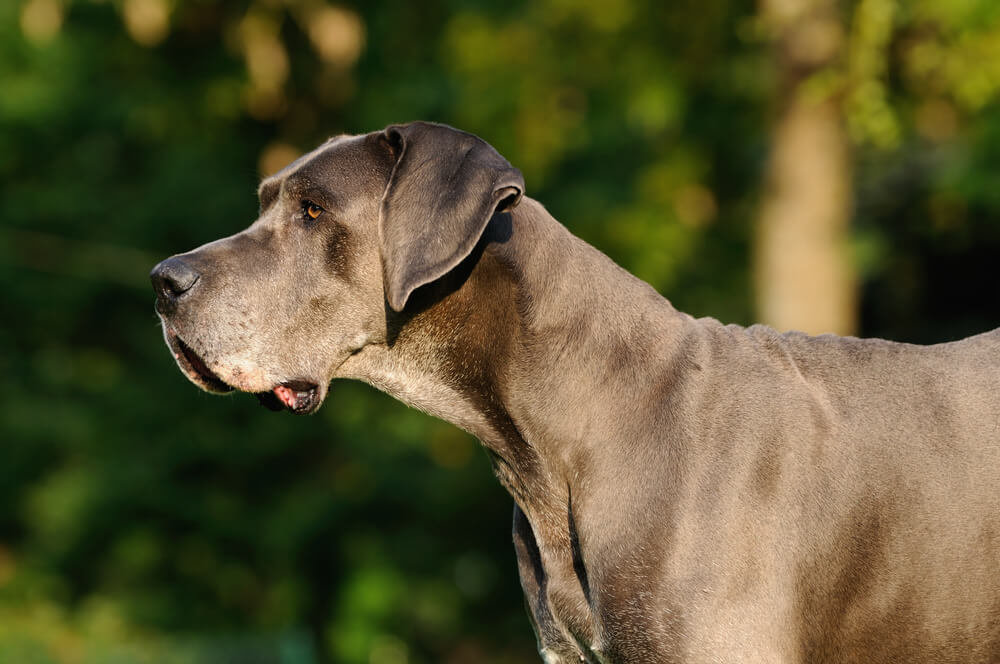Hey Ollie blog readers! We’re offering you an exclusive 60% OFF your starter box! Try now!
Having a dog can be wonderful for anyone, especially those who are considered “senior citizens”. If someone is older or has limited mobility, they may not want a highly active dog or even a puppy. Luckily, there are dogs who are older or lower energy that need loving homes – problem solved right? You might be wondering what breeds you should consider when choosing a dog for a senior.
6 Best small dogs for seniors
1. Bichon Frise
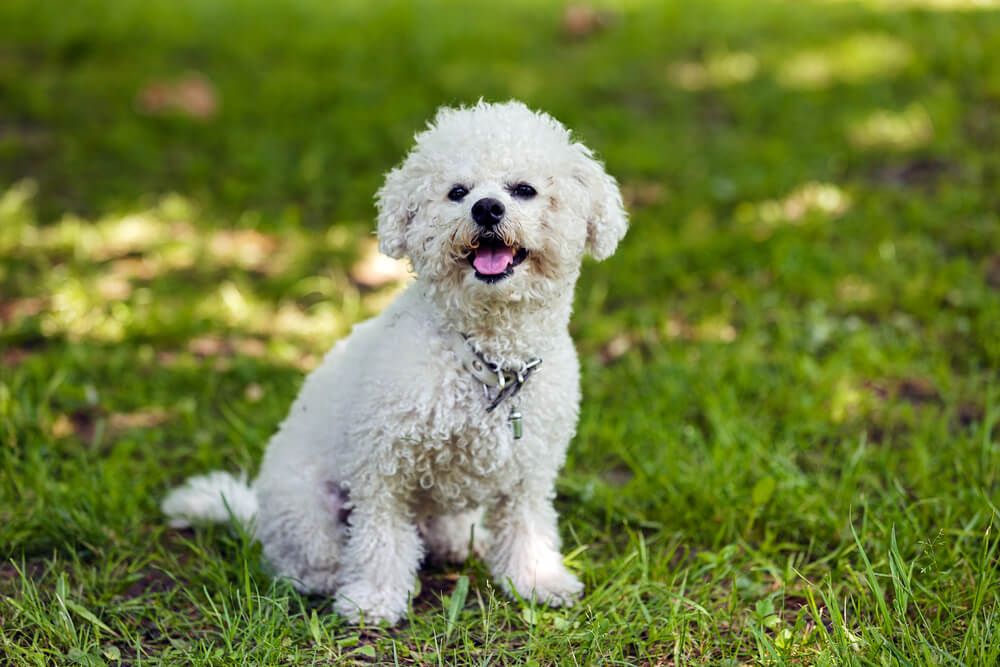
Under a foot tall and ranging on average from 14 – 18 pounds, these small, friendly pups can make the ideal companion. Bichon Frise’s are affectionate and have great personalities.
2. Cavalier King Charles Spaniel

The Cavalier King Charles was bred to be a companion dog. They are content to enjoy some Netflix and couch time with their owners. Cavaliers are sweet and sensitive dogs and are often used as therapy dogs.
3. Pug
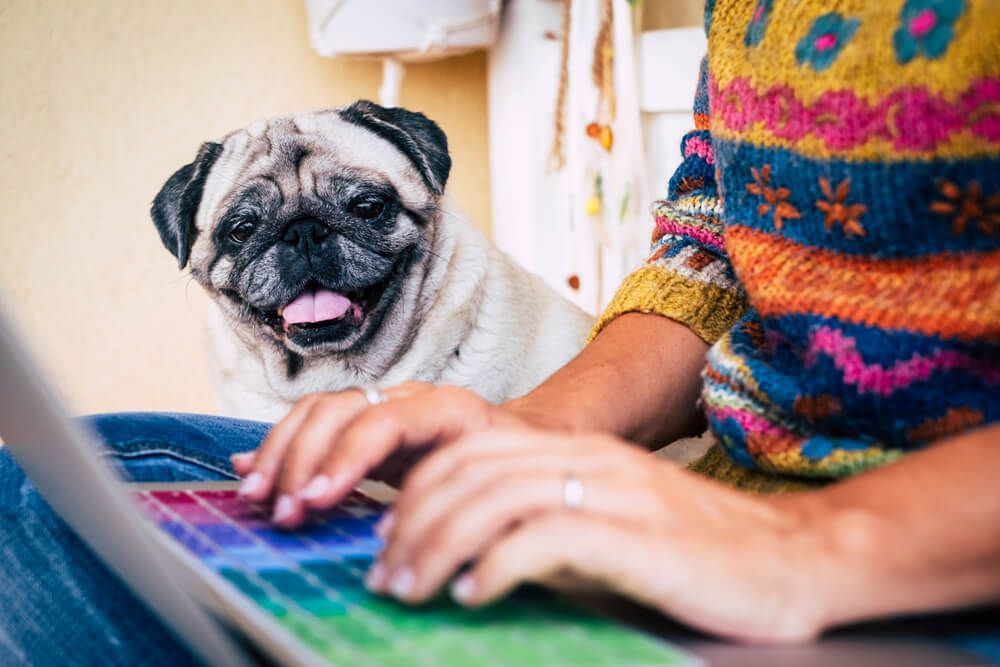
Pugs are big personalities trapped in small bodies. They love to please their people and they’re very intelligent. Note that pugs fall into a category of dogs called brachycephalic and that means they have flat faces. Pugs are not allowed to travel as cargo on an airplane and you need to use extreme caution with them in extreme temperatures as they are exceptionally sensitive.
4. Poodle
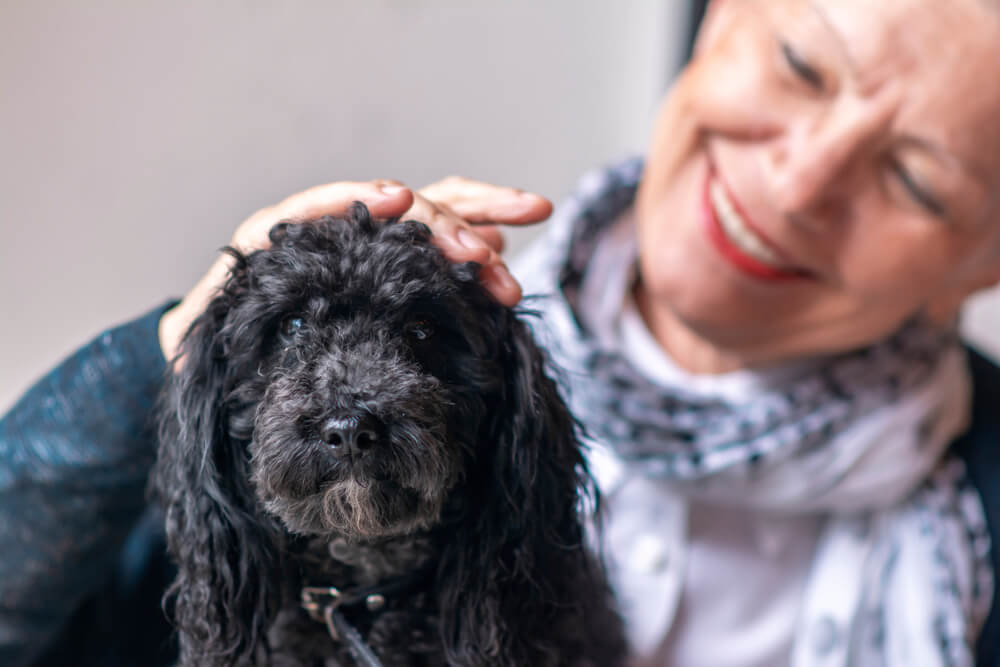
While standard poodles are on the larger size for this list, they are wonderful companions. They are very intelligent and can easily be trained to help with household tasks like getting a bottle of water or opening and closing cabinets. If you are truly looking for a smaller dog, consider a miniature or toy poodle.
5. Chihuahua
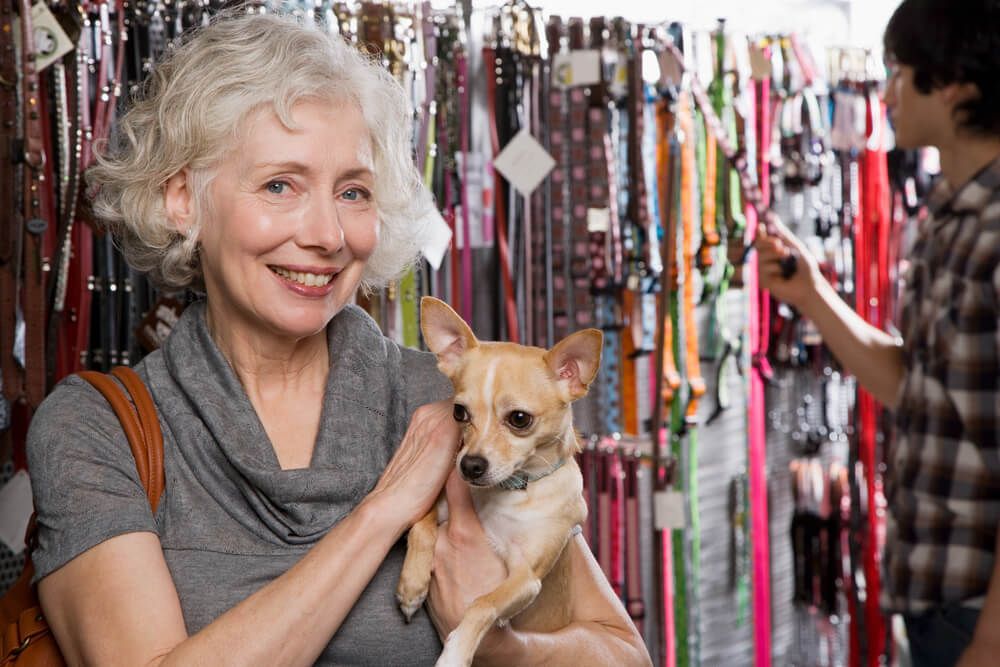
Chihuahuas can also be big on personality. They are loyal and protective and can come with a big voice. They tend to do better with adults then children, so if you have a lot of young grandkids, maybe consider a different breed or monitor the grandkids and your dog closely.
6. Mixed breed
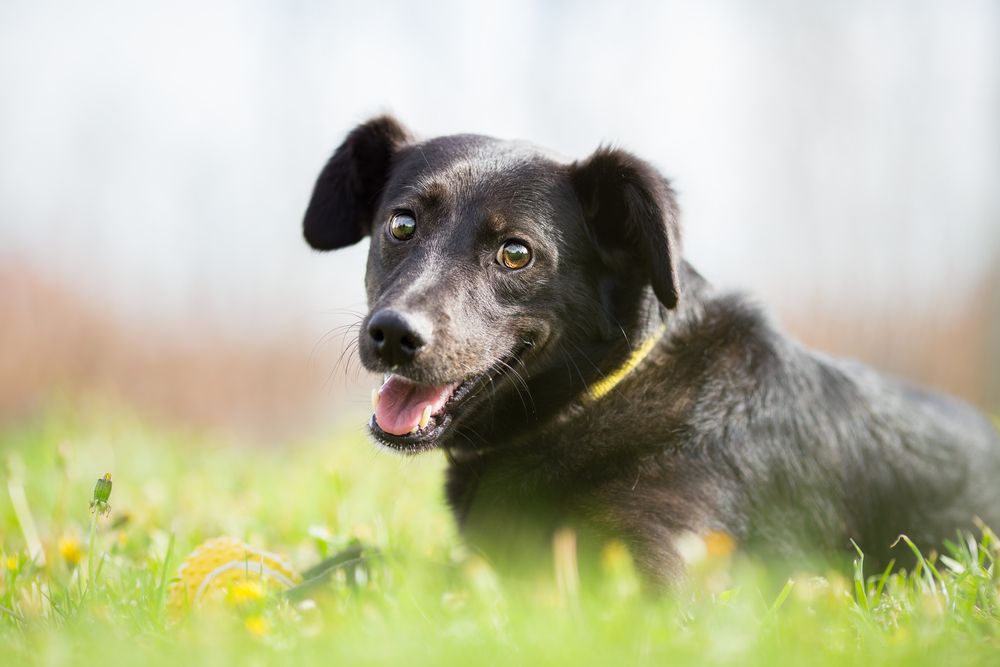
We’d be remiss not to include mixed breeds on this list. There are plenty of dogs who find their way into the shelter system who need a good home and would enjoy living with a senior. Dogs who have lost their owners due to relocation, illness or a death in the family may just fit the bill perfectly. When looking for a small to medium more sedentary dog, speak with an adoption coordinator or volunteer at the shelter to find the perfect match. They will be glad to make a connection that benefits both the dog and human!
Factors to consider before getting a dog
1. The size of the dog
Even if the dog is completely mobile, there may be times where you need to lift your pup. Before bringing a dog home consider how much you can lift safely and be honest with yourself. As your dog gets older you may find you need to carry them more, so choose a dog that you can carry safely. You also want to think about the amount of space you have. Many dogs thrive in apartments so if you have a smaller space consider choosing a dog who will fit perfectly.
2. The dog’s energy level
Regardless of your dog’s energy level, they will still need some exercise. There are many ways to help your pup burn off excess energy, some you can do without even leaving the house. Before bringing home a dog, decide how much exercise you can commit to with your dog each day. Some dogs are perfectly content to snooze on the couch all day and just go out for a short walk and some bathroom breaks. You will want to make sure your dog is housebroken or there will be some cleaning up at the beginning. If you have limited mobility, you can also hire a dog walker and use pee pads in the house in between long walks. If you choose a smaller dog this shouldn’t be a problem. Place the pee pad in a designated spot and change it after your dog uses it so your house won’t smell.
3. The time you will need to devote to the dog
Even if your dog is lower energy, they will still need your time and attention. If you are very active and out of the house a lot, you will want to make sure your dog is still getting the mental and physical stimulation they need. Dogs are social creatures and some don’t do well when they are left home alone all day. If you leave your dog alone too much you risk your dog developing separation anxiety, excessive barking or other stress-related behaviors.
4. The health and grooming needs of your dog
Even if your dog is relatively healthy they will need annual wellness exams (bi-annual after 7 years old), vaccines, heartworm and tick preventatives, and regular grooming. You will want to make sure you factor this into the overall cost (both time and money) of getting a dog. While there are many food options for your dog that are of quality but not very expensive, vet care and grooming are non-negotiables. There are some grooming tasks you can do at home to keep the cost down, but for serious haircuts you should consult a pro.
5. Any rules or policies around having the dog where you live
If you live in an over 55 community or even a regular apartment complex, you need to make sure you know the rules about having a pet. Some places do not allow them at all while others have breed restrictions and/or require an additional deposit if you have a pet. If you are adopting a dog from a rescue be prepared to show proof that the dog is allowed to live with you where you are. Some complexes require that your dog pass the American Kennel Club’s Canine Good Citizen exam or become certified as a Therapy Dog.
Tips for seniors who are considering getting a dog
1. Consider bringing in a trainer to help you adjust
If you have never owned a dog before or if it has been a while since you had one, consider bringing in a trainer to help you both adjust. A trainer can give guidance, help you come up with a schedule and work on basic obedience commands like sit, stay, and drop it or leave it.
2. Find a leash that is comfortable for your hands
If you have arthritis or limited mobility in your hands, you should consider finding a leash that is most comfortable for your hands. You might even want to look into a hands-free leash so you don’t need to use your hands to walk your pup. You also will want to consider using a harness or gentle leader so your dog doesn’t pull you when you walk. If your dog is a strong puller, consider working with a trainer to refine your dog’s leash manners.
3. Find a dog walker in case you ever need help caring for your dog
If you have limited mobility, or even if you get sick, it might be helpful to have a dependable dog walker or walkers to be able to call to help you out if you’re struggling to walk the dog. Your pup will take care of you when you don’t feel well or are tired, and will probably be content to keep you company all day. You still want to make sure their needs are being attended to, even if that means having someone else provide them with a break and some fresh air.
Best places for seniors to find the right dog
1. A local rescue or shelter
Dogs find themselves in a shelter or rescue for a variety of reasons. There are many amazing dogs who come through the shelter system each year due to circumstances that are beyond anyone’s control. This is why shelters and rescues exist, to give dogs the best second chance at a wonderful life. Before contacting a rescue or shelter you should have some idea of the type of dog you’re looking for. You might consider a dog who is at least two years old, under 30 pounds, is moderate to low energy, has a shorter coat, and is healthy. These criteria will narrow down the dogs who might be a good fit for you without being too narrow. You can keep in mind some of the breeds we’ve outlined above as sometimes even purebred dogs enter the shelter system. If you have your heart set on one of those breeds, consider a breed-specific rescue.
2. Consult a vet
Veterinarians may have the scoop on some local dogs who need a new home for whatever reason. Some even provide services to rescues and shelters who have dogs that need specialized care. As a bonus, you’ll already have a relationship with a vet when you do bring home your perfect pup. It is important you keep up with the routine vet care and keep your dog happy and healthy.
3. Find a reputable breeder
Even if you don’t want to get a brand new puppy, a breeder still may be able to help you find the right dog. On occasion, breeders do sell adult dogs or have a situation where they need to rehome a dog they previously had sold. While this may take more time to find the right dog for you, it is a viable option.
Dogs are amazing companions and can add life to your years and years to your life! If you or someone in your life is older and considering adding a dog to their family, hopefully, these tips help to find the very best dog for you!
The Ollie blog is devoted to helping pet parents lead healthier lives with their pups. If you want to learn more about our fresh, human-grade food, check out MyOllie.com.
Tagged As:

The nutrition your dog needs,
the food they want.

Enjoying our articles? Subscribe our Newsletters and get new articles directly to your inbox
You might also like
25 March 2025
4 MINS READ
Yorkie Pros & Cons: Is a Yorkie the Right Dog for You?
At around 7 inches tall and weighing just 7 pounds, the Yorkshire terrier (Yorkie for short) can fit a lot of personality into their tiny bodies. If you’re looking for a new best friend and have …
25 March 2025
5 MINS READ
Collie Temperament: 6 Personality Traits Explained to Get to Know Collies Better
Described by the American Kennel Club as devoted, graceful and proud, the collie is ranked 38th on their list of most popular breeds. While many people think of Lassie when they think of the coll…
25 March 2025
7 MINS READ
Great Dane Temperament & Personality: Get to Know Your Dog
Usually, the first word that comes to mind when you think of a Great Dane is larger than life! These big, beautiful dogs have a way of capturing attention wherever they go. Have you ever wondered w…
